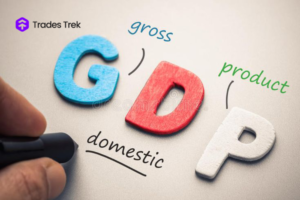All you need to know about stock order types in the Nigerian stock market
In the Nigerian Stock market, investors encounter various stock order categories. Every trade involves two fundamental stock order types: purchase order and sell order. Before we discuss the various stock order alternatives, let’s have an understanding of what a trading order really is.
What is a trading order?
A trading order is an instruction, given to a broker to buy or sell a stock, within a specified price and timeframe. Trading order categories in the Nigerian stock market vary depending on investor’s financial goals and investment strategies.
Now that we have a good understanding of what a trading order is. We will go further to discuss trading order categories in the Nigerian Stock market.
Market Order
This is the most common order type in stock trading. Stock prices are determined by the market ,which ensures swift execution of orders at the available market price. However, there may be price fluctuations especially in volatile markets, resulting in deviations in anticipated prices.
For example, an investor, wishes to purchase 40 shares in Dangote Sugar. At 10.00am, when the Nigerian stock market opens, the investor places a buy order at the value of 245.00 NGN per stock. And within minutes the broker completed the transaction at 247.50NGN per stock.
Limit order
This order type allows investors buy or sell stocks at a predetermined price range. Investors get to set the maximum and minimum price they are willing to sell or purchase a stock. Unless the price matches the investors specifications on how the order should be executed, the trade is not executed.
The Buy-limit Order
Investors use this class of limit order to purchase stock for less than the current market price. For example, consider a scenario where a stock is currently trading at 500.00NGN. And you predict a price decline. You can set a buy limit order to acquire that stock at 450.00NGN or lower. When the stock price declines to that level, the trade order executes.
The Sell-limit Order
Contrary to the buy limit order, this order aims to sell stock above current market price. For example, Consider a situation where a company’s stock is currently trading at 500.00NGN, and you foresee a price increase. You can set a sell limit order at 570.00NGN or higher. Once the stock price reaches that threshold, your trade executes.
Stop-Loss Order
This order type instructs the broker to buy or sell a stock when it reaches a specified price, regarded as the “stop price”. Once the stock price reaches the stop price. The order is immediately converted into a market order and your trade is executed as soon as possible.
For example, consider an investor with 100 shares in XYZ company, and has set a the stop price at 500.00NGN. If the share price of company XYZ declines to 500.00NGN the order is converted to a market order and executed. This order type aims to protect investors against potential losses by initiating automatic sell or buy actions at a predetermined price.
Stop-Limit Order
Unlike the Stop-loss order this order type involves setting two pricing points. Which are the “stop price” and the “limit price”. Investors establish a stop price (the price at which a trade is triggered) and a limit price (the price at which a trade is executed). For instance, suppose you buy a stock at company ABC for 200.00NGN and anticipate a rise in its price. You can set a stop-limit order to sell the shares if your predictions prove incorrect. If you set the stop price at 150.00NGN and the limit price at 150.10NGN, the order activates when the stock reaches 150.00NGN.
Trailing Stop Order
This trading order category allows you to control where you are locking your profits in the direction the stock price is moving. For instance, you set a trailing stop at 10%, for a stock at 1000.000NGN. If the price of the stock drops by 10% below the purchase price, your broker will execute a sell order. Which will be at 900.00NGN, this is your stop-loss price. If the stock price never increases or decreases your stop loss will remain at 900.00NGN. But if the price of the stock increases by 1% to 1010.00NGN, your stop-loss price will also increase by 1% to 909.00NGN.
This order type adjust price in response to market fluctuations in order to effectively manage risk and optimize profits.
In Conclusion, as an investor in the Nigerian Stock market, understanding the various stock order alternatives is very important. By leveraging on these trading order categories, investors can navigate the stock market with confidence, and align their investment goals and objectives with different investment strategies.
Test out your investment strategies with the free Trades Trek Stock-Trading Simulator, try out different stock order options and see how they function. Download on Android and IOS.




